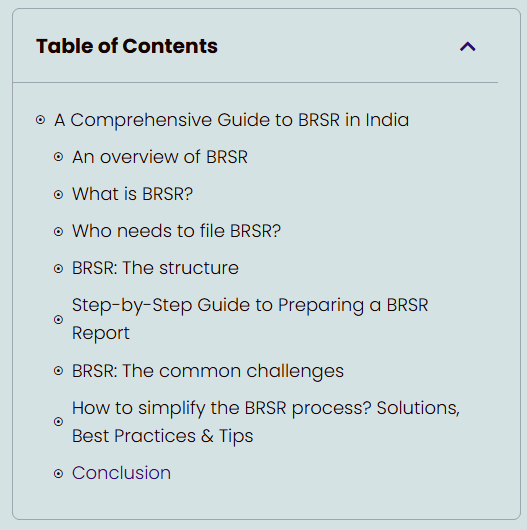

Sustainability is more than just a catchphrase in today’s corporate environment. It is rather regarded as a boardroom priority that may have an effect on an organisation’s legitimacy and reputation. With growing investor interest, regulatory pressures and consumer expectations, companies are being called to not just do good, but to prove it. This is where Environmental, Social and Governance reporting (ESG) becomes paramount.
The Business Responsibility and Sustainability Report (BRSR) framework has been released by the Securities and Exchange Board of India (SEBI) to make sustainability disclosures in India more consistent, clear, and accountable. BRSR has rapidly emerged as the industry standard for corporate sustainability reporting in India and has been made mandatory for the top 1,000 listed firms by market capitalisation starting from the financial year 2022-2023. Now, in 2025, BRSR is an integral part of annual reporting for India’s leading companies.
But what is BRSR exactly? What distinguishes it from the previous BRR framework? How can businesses simplify their reporting operations without getting entangled in the intricate data collecting and compliance protocols?
This is a complete guide to BRSR reporting in India diving into the answers to all these questions, concerns and more. This article aims to provide
A clear explanation of what BRSR is
A step-by-step guide to preparing a BRSR report
Actionable tips to simplify compliance
Best practices to future-proof your ESG strategy
Let’s cut through the clutter!
Let’s begin with the fundamentals!
BRSR (Business Responsibility and Sustainability Reporting) is a mandatory ESG disclosure framework introduced by SEBI for the top 1000 listed companies in India. It standardizes the reporting of a company’s environmental, social, and governance (ESG) performance, helping investors and stakeholders assess non-financial risks and sustainability practices.
The Securities and Exchange Board of India (SEBI) established the Business Responsibility and Sustainability Reporting (BRSR) framework, which mandates that businesses disclose the extent to which they conduct their operations responsibly.
In simpler terms, BRSR goes beyond just the financial gain. It brings both humans and the environment into the picture.
As a result, companies are now compelled to disclose not only their financial results but also their environmental practices, how fairly they deal with employees and suppliers, how inclusive their policies are, and much more.
This indeed brought in a transformative shift, anyhow, a necessary one.
As of 2025, BRSR filing is mandatory for the top 1,000 listed companies in India, based on market capitalisation, as per SEBI’s Listing Obligations and Disclosure Requirements. These companies must include their BRSR along with the annual financial disclosure submissions.